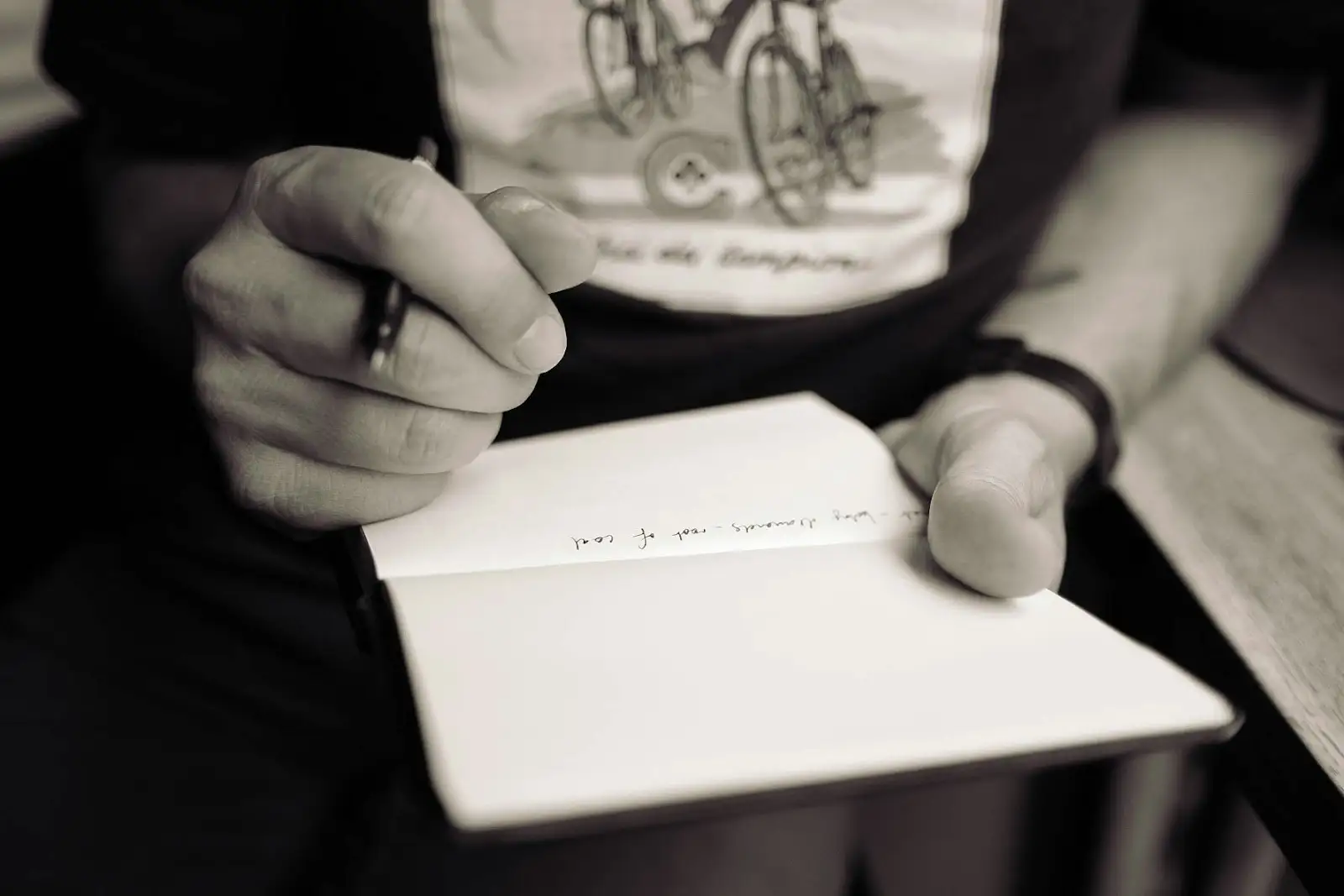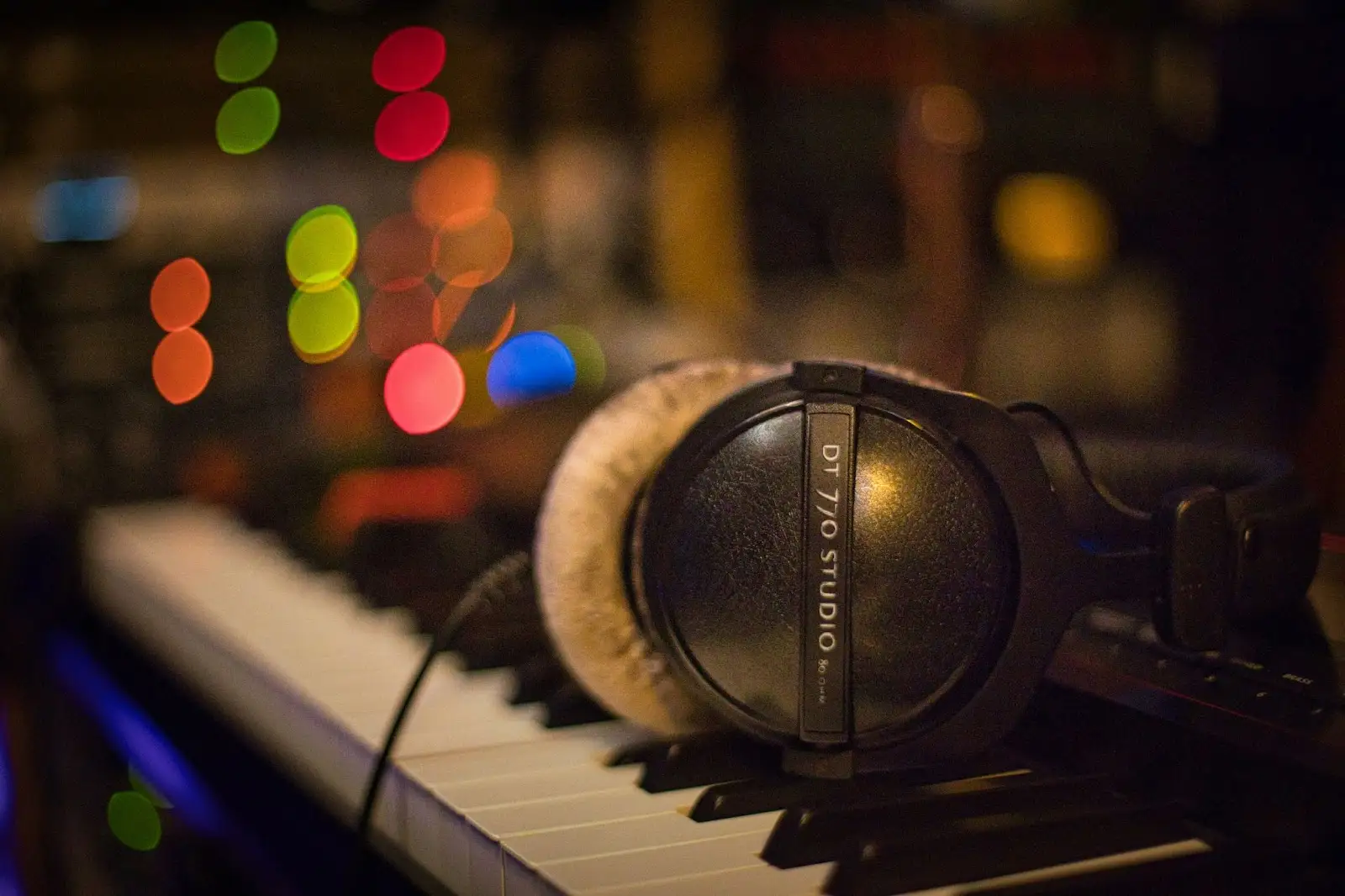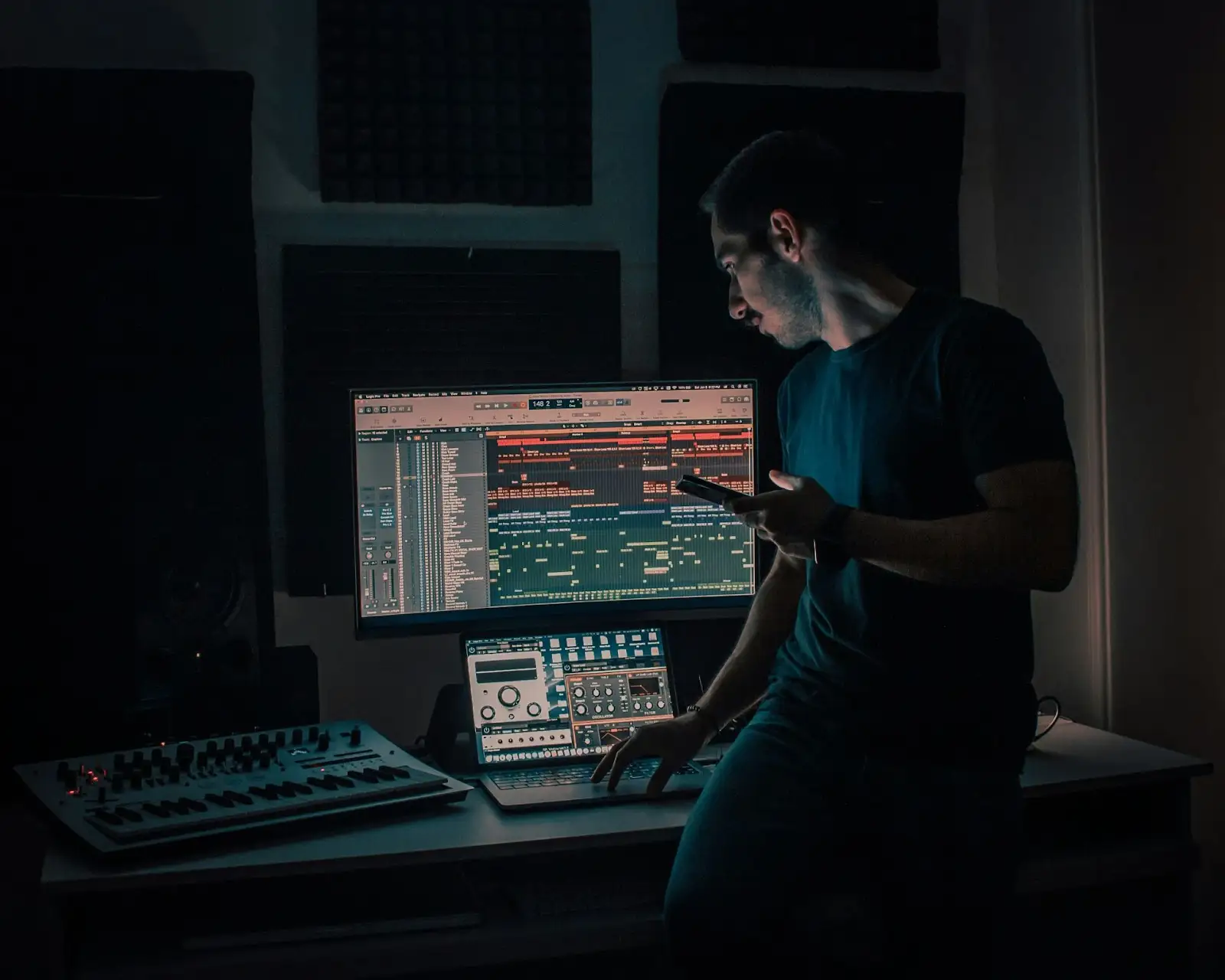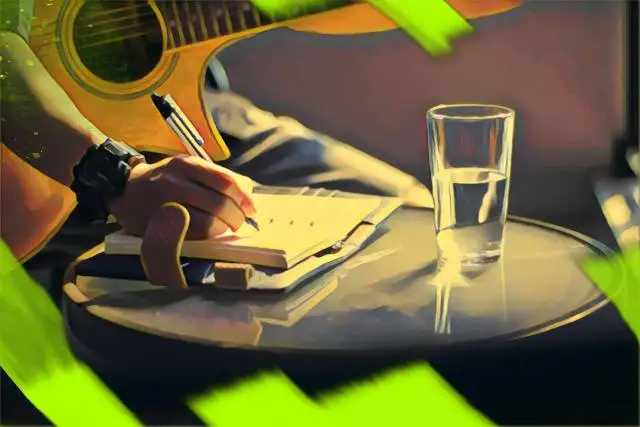Sometimes you can sit down to write a song, and ideas come flowing out of you in a waterfall of songwriting inspiration. At other times, the songwriting process can be more like pulling teeth.
The thing is, if you sit around all day waiting for inspiration to strike, your catalogue of songs will never grow beyond the size of a walnut. Worse yet, you might just churn out the same old nonsense, á la Nickelback (jk, love you guys).
If you’ve ever found yourself stuck for ideas in the creativity department, don’t fret. Even the best songwriters have found themselves in the same boat as you. This article will help fire up your creative juices and give you a bunch of places to find inspiration for songwriting for years to come.
Let’s dive in!
The Basics of Songwriting
Before we start looking at ways to turbo boost the creative process, let's take a closer look at what a songwriter has to pull together when writing a song.
Lyrics
Without words, a song is simply an instrumental piece of music. Lyrics are incredibly important to a song's emotional appeal; the meat behind the message, if you will.
Music
What (generally) makes a song memorable is the musical ideas contained therein. A combination of melody, harmony, and rhythm that reinforces the message of the song.
Production
Finally, let's not forget the production aspect of songwriting. Choosing the instruments, crafting the sound design, recording, arranging and mixing everything together into a hit song.
Each of these areas is it's own craft, so let's focus on each one in turn, and look at some strategies for getting inspired.
Finding Inspiration for Lyrics

1. Keep a Journal
We go through a tumult of emotions and thoughts on a daily basis. Capturing these, ideally in handwritten form, can build a treasure chest of lyric ideas for future songs.
When you sit down to write your next song and have no idea what to write about, simply open up your notebook and start writing.
2. Go People-Watching
Humans do the weirdest things. Have you ever tried just sitting in a coffee shop and surreptitiously eavesdropping on the conversations happening around you? Or just watching the guy across the street doing his thing, and wondering what his story is?
The outside world can yield a surprising amount of creative ideas for the writing process, whether it's an imagined backstory behind the guy dancing in the rain, or a snippet of a phrase overheard at Dunkin' Donuts.
3. Reinterpret a Personal Memory
This is an interesting one, and could lead you on quite a moving journey. Think back to personal experiences in your life that were particularly emotional, and write about them from a new perspective.
For instance, if you remember standing bedside your grandfather saying your last goodbye, try writing lyrics from his point of view. What would he be saying? How would he feel?
4. Dream a Little Dream
If humans do the weirdest things, dreams create the weirdest experiences. But dreams can be a great source of surreal imagery or new ideas to write about.
Try keeping a dream log by your bed, writing them down as soon as you wake up. You never know which bizarre night time experience will spark new lyric ideas!
5. Read
Whether it's books, news stories (current or historical), obituaries or poetry, you're sure to find a ton of inspiration for your own songs. A compelling news story could be a great starting point for a song. Reading about someone's life in an obituary might inspire you to write a song about their experiences, or a turn of phrase in a book may turn out to be your next hook .
Some of the best lyrics ever written have been inspired by the written word. So put yo' specs on and get reading!
Finding Inspiration for Musical Ideas

6. Listen to New Music
As the saying goes, nature abhors a vacuum, and if you only listen to the same 4 or 5 artists your own writing will get stale.
Make a point of exposing yourself to new music on a regular basis. And when I say new, I mean new-to-you. This could be the latest release in a genre you've not listened to before, or an artist from yesteryear.
Listen carefully to how the song is put together; how do the chords flow? Does the melody focus around a single note, or use a wide range?
Getting out of your music-listening comfort zone will have the biggest impact on how you go about writing songs, and will develop your skills as a songwriter.
7. Experiment with a New Instrument
Many musicians develop certain habits about the way they play their instrument. For instance, I will nearly always play the first chord of a progression in second inversion . I can't tell you why; it's just where my hands fall.
The result of these habits is that your music will end up taking the same shapes every time, unless you make a point of exploring different ways to create. And one of the best ways to do this is by picking up a different instrument and writing music on that.
If you normally write songs with a guitar, try using a piano, and vice versa. This can be a great way to explore chords that you wouldn't normally use.
For melodies, try playing around with a monophonic instrument, like a saxophone or cello. You can often rent instruments from a local music store fairly inexpensively, and this can be a fun way for songwriters to stretch their skills.
8. Grab a Sample Pack
Sometimes you just need to hear something fresh to get inspired, and browsing through a sample pack can be a great way to generate new ideas.
Don't be lazy about it though - use your creativity and try your hand at sample chopping to create new melodies or beats from the samples in the pack.
This idea can also be used with your own melodies or a chord progression that didn't make the cut. Try re-sampling a track you never finished and see what new direction it sends you off in.
9. Play with Song Structure
In the same way our hands can fall into the same tired old shapes when creating melodies or chords, we can end up repeating the same song structure over and over again.
Song structures are good, and there for a reason, but there's no harm in switching things up every now and then. For example, if you always start with an intro that's reminiscent of the chorus, try diving straight into a verse with no lead-in.
If you're feeling wild, try to write a song in a form you've never used before, like AABA, or strophic form.
10. Rewrite a Classic
There's a lot of great music out there, and one way to stoke inspiration for songwriting is to rewrite something that already exists. Take the lyrics for a song, and set them in a completely new and different way. New melody, new chords, new genre. New song, who dis?
This can be tricky to do as you may have a tendency to revert back to the original, familiar melody and chords. But if you choose a song you don't know well - say a Taylor Swift album track - you're less likely to fall into this trap.
The goal here is not to steal, but to create something entirely new, then ditch the original prompt.
Finding Inspiration for Music Production

11. Set a Time Limit
I get it; when you're being creative in the studio you want to spend time exploring your options. But if you're feeling uninspired when producing a song try putting the pressure on and setting a time limit to finish the work.
Imagine you absolutely have to get the finished mix delivered in three hours. You'll be forced to make quick decisions, and you may be surprised at how much it can jump start the creative process.
12. Set Boundaries
If you're anything like me, you'll have a bajillion sounds and plugins to choose from when producing a song. With all these options available to you it's easy to get stuck in decision paralysis mode and never actually finish the songs you're working on.
Next time you need some inspiration in the production department try setting some boundaries on what tools you'll use (or what you won't use).
13. Use Found Sounds
Life is full of music, if you listen closely enough. Get in the habit of recording everything you hear, either with your phone, or ideally with a handle held recorder like the excellent Zoom H2-N.
Whenever you're in need of inspiration, dive into your found sound library and see what you can create. It could be a percussive loop that forms the backbone of the song, a sampled door creak that ends up as a gated pad, or simply an extra layer of ambience in the music.
14. Try a New Way of Producing
A change is as good as a break, and this is also true in the world of producing songs. If you find yourself lacking ideas on the production front it might be time to switch up how you do things.
If you always play everything yourself, hire a musician to lay down some parts. (Make sure you agree beforehand how their contribution will be compensated and credited, either with a work-for-hire agreement, or as a song split ).
Always work in a linear-based DAW? Try producing in Ableton , or putting together a song in Native Instrument's Maschine.
15. Read Biographies
In the same way that listening to great artists can lead to songwriting inspiration, reading the biographies of leading music producers can inspire you to get back behind the desk with a new sense of purpose.
Here's some great examples for starters:
- Rick Rubin: In The Studio (Jake Brown)
- Behind the Glass Vol II (Howard Massey)
- How Music Works (David Byrne)
Inspiration for Everything

We've looked at ways to find inspiration for specific areas of songwriting. The following strategies are applicable to all areas of the songwriting process.
16. Write Every Day
Commit to a daily writing routine, even if it's only a few minutes a day sketching out lyrics, or a melody idea. The art form of songwriting is like a muscle; the more you use it the stronger it becomes.
17. Allow Yourself to Suck
One of the biggest barriers to creativity is yourself. Songwriters, quite naturally, want to write hit songs. But that doesn't mean everything you write has to be great. Quite the opposite in fact; in order to write the good stuff you have to wade through the crappy parts first.
So, allow yourself to simply write songs without the specter of excellence looming over you. You'll enjoy songwriting more, you'll be more prolific, and you'll inadvertently discover some hidden gems. Start writing. Just do it...
18. Collaborate
Two heads are better than one, so try songwriting through collaboration. It'll make the process much less daunting, and will throw up new ideas that you likely wouldn't have thought of on your own.
19. Do a Songwriting Challenge
Songwriting challenges are a great way of churning out a bunch of songs while holding yourself accountable. The solidarity of knowing there are other songwriters out there committed to the same goal will help you feel inspired when the well starts running dry.
Songwriting challenges like February Album Writing Month ( FAWM ) encourage songwriters to show up, write music, and stay motivated. The challenge itself can be exciting, and the global community is a wonderful resource for finding collaborators, new friends, and a place to talk through your own experiences.
20. Explore Other Art Forms
Last, but by no means least, don't forget that there is a life outside of songwriting. Take time out to explore art in its most general sense; take in works by visual artists, sculptors, poets, graffiti artists, street performers, anything creative.
All of these personal experiences will have a profound impact on how you see the world, and therefore on the art you make.
As Stephen King famously said:
“Amateurs sit and wait for inspiration, the rest of us just get up and go to work.”
―Stephen King, On Writing: A Memoir of the Craft
Now go forth, and writeth the music.





